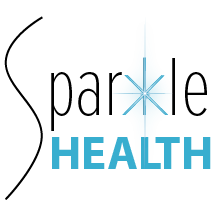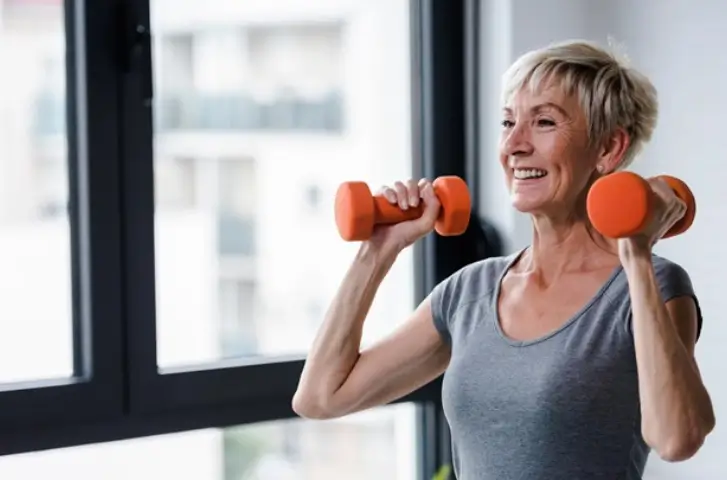Coronavirus / COVID-19
You have probably read by now that this “novel” Coronavirus is now a public health emergency in many areas of the country and our local community. This virus is in the same family as other viruses that cause the common cold. What is different and cause for concern is a portion of those infected develop severe respiratory distress (16% of those who test positive per data out of China where testing has been more widespread. If you do develop symptoms of respiratory illness I am happy to see you virtually, please set up a Zoom visit with my office and we can discuss what you should do. This situation is constantly evolving and I am keeping tabs on the CDC recommendations. I also have 4 medical licenses and am getting updates from some of the health departments and they all differ a bit!
I have not gone into some of the integrative treatment options and have focused more on prevention for now. There is very little data on integrative treatment options specific for coronavirus although there is one study out of China on the positive influence of traditional Chinese herbs.
If you suspect coronavirus and have mild illness, please do not come to the office!
Please follow the following procedure:
- Schedule a video visit (Zoom)
- IF testing indicated, arrange for testing. That must be done through the health department and at local hospitals after screening process. Testing capabilities at this time are still limited even though several private labs have capabilities. This hopefully will change soon.
**IF more severe illness, including shortness of breath or trouble breathing, seek emergency health services urgently if you need care.
If you are concerned about coming to your office visit, we are offering to convert the visit to a telemedicine or video conferencing zoom visit instead. If you are experiencing any symptoms that could be related to the coronavirus, please call and schedule telemedicine or Zoom so we can evaluate you remotely and we will arrange for testing if indicated. It is important you not come to the office as we do not have the required protective masks and gowns nor do we have the testing kits. This is important to minimize the possible spread of the virus. We are taking extra precautions and limiting more than one patient in the office at a time and will be cleaning community areas after each patient contact. ***We will even text you when we are ready for you so you can wait for your appointment in your car. This will give us time to clean surfaces and limit time in the waiting area.
Building Resilience and Social Connection
If there is one thing I feel that this Coronavirus issue has taught us is that we are all connected. It is through social responsibility and support and care taken in our local communities that will help us through this as well as the other health challenges we may be facing. I know that life is disrupted right now and it is our social responsibility to slow the community transmission of the virus which is already happening. I was on the rail trail in Windham the other day maintaining my 6 feet of distance from others on the trail and I felt compelled to wave more to other walkers and runners on the trail.
I have been reading the CDC website and journal articles for weeks now and here is what I feel you should know and what you should do to protect yourself and your family.
Are you at risk for a severe response to COVID-19?
Reports from China where the virus originated suggest 16% of those infected are at risk for serious illness. I feel that this is the best data we have because in the United States, we have not been testing most people with mild illness. People in that 16% are over 65 years of age and people with underlying chronic medical conditions. If you are in that 16%, my advice is to take extra precautions that I will outline below.
If you are in the 84% of the population, the symptoms are more mild consisting of the following for one week:
- LOW GRADE FEVER (this is typically not the case with seasonal flu)
- MALAISE (fatigue, feeling off)
- COUGH
- MYALGIA (muscle aches)
Those with mild illness will recover within 2 weeks. Those at risk for more severe illness, will see further decline in the second week and progress to increased shortness of breath and trouble breathing with significant respiratory distress (feeling winded even with talking and resting).
When should you seek testing?
Testing still seems to be a problem. I do not have test kits in my office. Currently the following people are recommended for testing:
- Any person, including health care workers1, who has had close contact2with a laboratory-confirmed3COVID-19 case within 14 days of symptom onset and fever4 or symptoms of lower respiratory illness (e.g., cough, shortness of breath).
- Person is part of a non-household outbreak of suspected COVID-19.
- Person hospitalized with unexplained respiratory illness or person who died from unexplained respiratory illness.
- Person traveled to or from an affected geographic area5with widespread community transmission and has fever4 or symptoms of lower respiratory illness (e.g., cough, shortness of breath).
- Person had community contact (e.g., attended the same gathering or stayed on the same cruise ship) with a laboratory-confirmed COVID-19 case and fever or symptoms of lower respiratory illness (e.g., cough, shortness of breath).
- Person is age ≥ 65 years, has chronic medical conditions, or is in an immunocompromised state and has fever or symptoms of lower respiratory illness (e.g., cough, shortness of breath).
As more community spread is identified and more testing is available, I expect these recommendations to widen.
What can you do to fortify your immune system?
If you are in a crowded elevator and there is someone coughing and sneezing next to you, what can you do to help your body resist disease and if infection lessen the impact?
- Sleep a minimum of 7 hours every night. We know our immune system is less effective at warding off infection when we have inadequate sleep. Between 7-8 hours is critical for our health and when this is compromised, we are more likely to succumb to viral infections.
- Eating a wide variety of healthy foods particularly the rainbow of fruits and vegetables helps our body and immune system function properly. Part of the issue that happens with this virus is the inflammatory response in the body it stimulates. Eating foods that are inflammatory can exacerbate this while eating foods that have lots of antioxidants can help mitigate.
- Eat foods and spices known for anti-infectious properties especially coconut oil and garlic and mushrooms.
- Monitoring the stress response can also be very important as high stress hormones over time affect our immune function. Stress can increase our inflammation as well. Meditation has been shown to boost the immune response, listening to a guided meditation for 10-20 minutes per day can be helpful in improving the immune systems response to infection.
- Getting fresh air throughout the day and physical activity is also important. Time outside is good for our health and again supportive of our immune system. Taking a walk outside can boost our ability
- Do the obvious things such as washing your hands. Avoid touching your face. Maintain a 6 foot distance from anyone who is obviously sick.
Preventing viral illness with functional medicine / supplements are supplemental to a healthy lifestyle but can be helpful
I am not touting any specific cures to the Coronavirus or COVID-19 but there are some nutrients that can be beneficial to our immune system in general to prevent illness.
- Vitamin D is critical to immune function and achieving optimal levels in the wintertime can be difficult. Research suggests that vitamin D supplementation decreases incidence of cold and flu. Some even speculate that perhaps we are more afflicted by these viruses during winter months when our vitamin D levels are lower. It is best to test vitamin D levels to be specific in dosing as this is a fat-soluble vitamin and too much of a good thing can be problematic. A typical dose is 1000 – 5000 IU depending on levels.
- Vitamin C is an important antioxidant that helps our body prevent and deal with the inflammation that results from infections. I would start with 1000 mg and can go as high as 3000 mg orally however bowel tolerance (diarrhea) can be an issue at higher doses.
- Probiotics, specifically Lactobacillus, Bifidobacterium and Sacchromyces (at least 25 billion cfu) in foods and supplements can be particularly helpful in prevention as well as potentially shortening the course of infections and reducing symptoms. Patients with COVID-19 report gastrointestinal symptoms (diarrhea) as part of the illness. I recommend either fermented food or probiotics for preventing and treating viral gastrointestinal symptoms.
- Omega 3 Fats 1000 mg in the form of foods and supplements are anti-inflammatory and support our cellular health and immune system. Food sources include walnuts, cold water fish such as salmon, anchovy and sardines.
- Good Quality Basic Multivitamin is not a bad idea. Our immune system works best when it has what it needs and I feel that multivitamins fill in those needs if lacking. My multivitamin is my insurance policy on my diet.
- Zinc 15 -30 mg short term to help prevent viral infections. In fact, zinc is being used as part of some treatment protocols for actively infected individuals with COVID-19.
Our next steps at Sparkle…….
I am taking this social distancing and coronavirus pandemic as an opportunity for personal growth. We will be offering classes to our members via zoom which will allow interaction and questions remotely. Stay tuned for that and offerings to distract us as well as enhance our health during this time where we are all “hunkering down” a bit. This a stretch goal for me as an introvert at heart but feel it is important during this time. Stay tuned for those offerings starting with the class next week being offered via zoom video conference.





